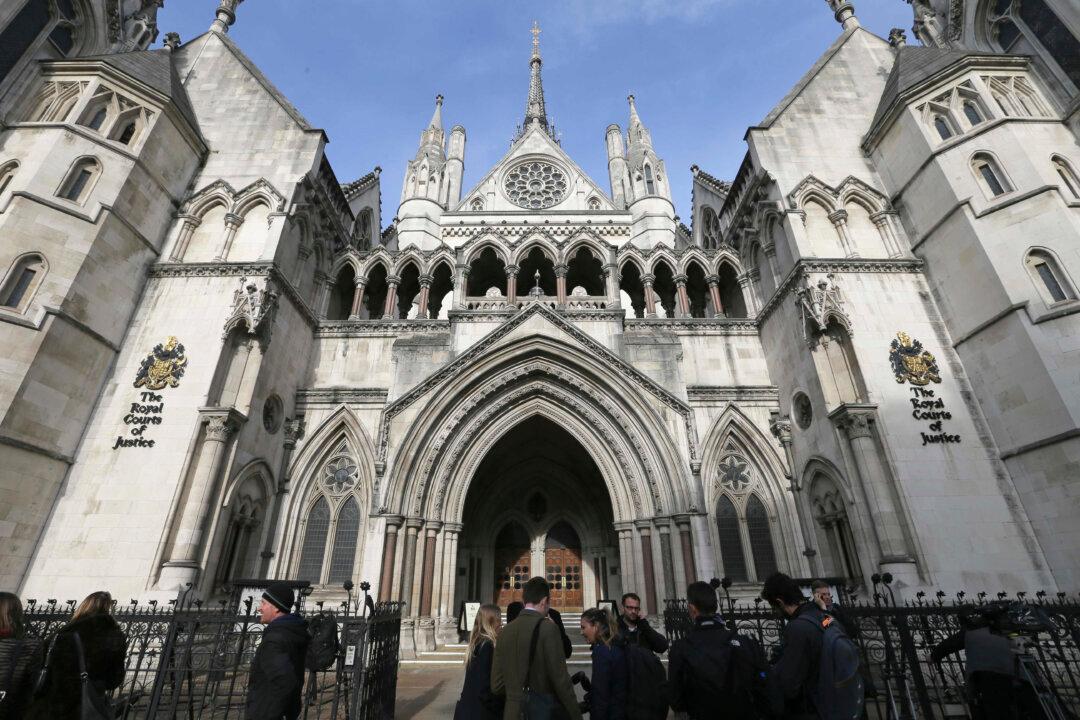An American man has failed in his bid to use the European Convention on Human Rights (ECHR) to overturn British law to match up with Californian policy and allow him to be legally recognised as “non-binary.”
Identified in the judgment as Ryan Castellucci, who works in cybersecurity and came to live in the UK in 2019, the claimant argued that UK law was in breach of his human rights by not granting him a gender recognition certificate (GRC) that lists his gender as “non-binary.”
In his home state of California, Mr. Castellucci was allowed to have his gender listed as “X” on his passport, and argued in his case against the British government that he should be given the same rights in the UK after minister for women and equalities Kemi Badenoch blocked his request.
In the judgment handed down by the High Court, the claimant is referred to by his preferred pronouns of “they/them” throughout and it was revealed he uses Mx. as his preferred title.
He used Article 14 of the ECHR to bring his case to the High Court after it was ruled in 2022 that a GRC could only be used to change gender from male to female, or from female to male.
When he applied for a GRC in 2022, he was told that gender in the UK legal system is considered binary and that “the gender Mx is not yet legally recognised in the UK,” and therefore his GRC could only be issued to read “female”—the opposite of his sex.
The claimant then launched multiple different legal actions using different remedies. He began an action in the family courts, and then a separate action in which he claimed his right to privacy under the ECHR had been breached, as he fought for his personal details to be withheld from legal documents.
Ahead of the hearing last December, he said on his crowdfunding page that he has always felt his personality consisted of both masculine and feminine elements and he does not accept that people are either male or female.
Legal Arguments
He instructed leading civil liberties and human rights firm Leigh Day, along with two barristers, Chris Buttler, KC and Marlena Valles.His legal arguments pointed to the approximately 30,000 people in the UK census of 2021 who stated their gender was “non-binary” in an optional question about gender identity.
His lawyers argued he is being discriminated against and does not have the same rights as trans-identifying individuals who have a GRC of the opposite sex.
Lawyers argued that a number of countries and states around the world legally recognise the concept of a self-declared “non-binary” gender, which they claimed could potentially cause cross-border issues when traveling.
The government’s lawyers argued successfully that sex is treated as binary under UK law for a range of reasons. Entitlements or rights may differ depending on a person’s sex, for example in relation to pensionable age, and there are criminal offences that can only be committed against persons of a particular sex, such as female genital mutilation.
The law assumes that only a woman can give birth or be a mother, which is important for maternity rights, the government argued, stressing that sex is an important factor in the provision of public sector services, such as the prison estate, health care, domestic abuse shelters, and rape crisis centres.
Lady Justice Elisabeth Laing and Mrs. Justice Heather Williams found that the GRC was established in 2004 to recognise the rights of post-operative transsexuals to legally call themselves their chosen gender and to marry someone of the same biological sex (before gay marriage was legalised in 2013), and was not intended to deal with claims of new gender categories.
The judgment ruled that: “There is very little, if anything, to suggest that Parliament might have imagined that in years to come, some people might feel that they were neither male nor female, but that they had some other gender altogether. Parliament was providing, rather, for changes in legal status against a binary concept of ‘gender.’”
The judges dismissed his claim but gave Mr. Castellucci permission to appeal using the judicial review process.







